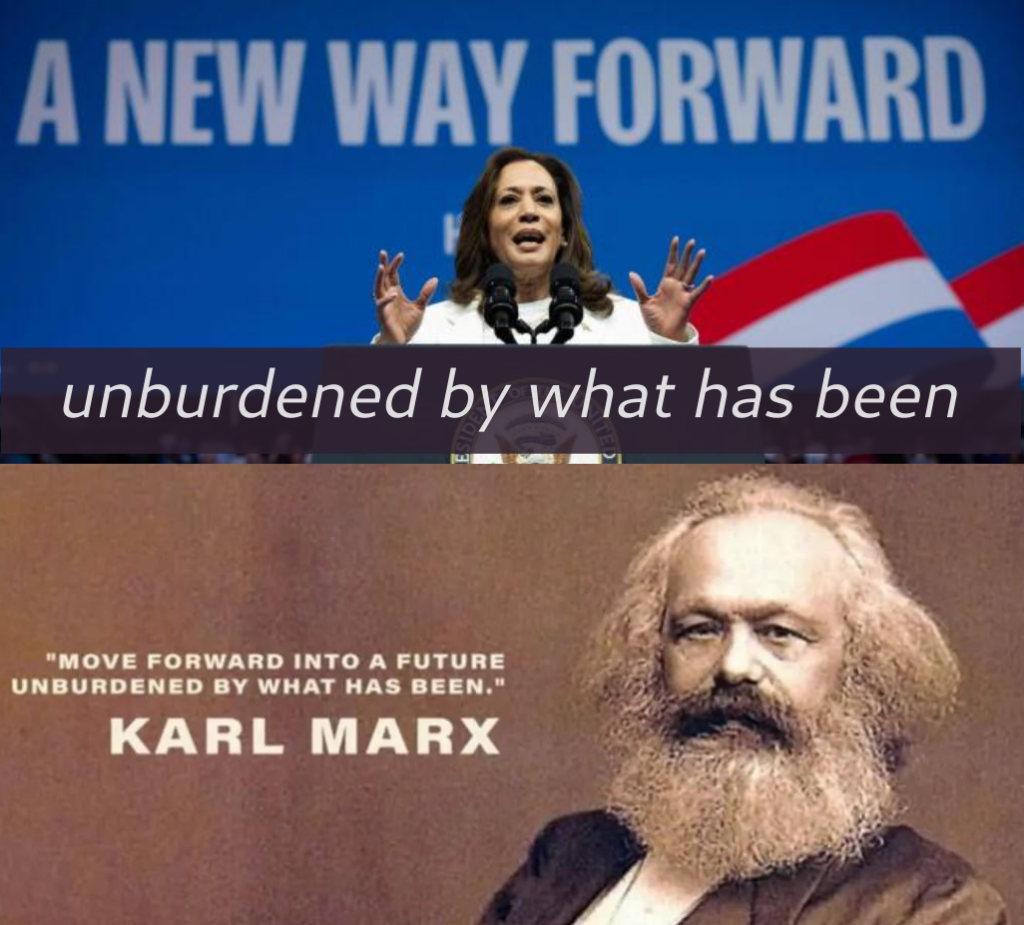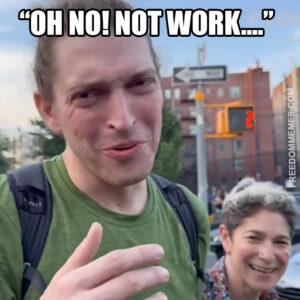Is Kamala’s ‘Unburdened by what has Been’ a Marxist Line?

Vice President Kamala Harris actually said this: “We have the ability to see what can be, unburdened by what has been.”
Many have claimed that it’s a paraphrase from Karl Marx: “Move forward into a future unburdened by what has been.”
But we couldn’t find that exact quote anywhere by Marx.
The Communist Manifesto does have similar sentiment however:
In bourgeois society, therefore, the past dominates the present; in Communist society, the present dominates the past. In bourgeois society capital is independent and has individuality, while the living person is dependent and has no individuality.
The history of all past society has consisted in the development of class antagonisms, antagonisms that assumed different forms at different epochs…. No wonder, then, that the social consciousness of past ages, despite all the multiplicity and variety it displays, moves within certain common forms, or general ideas, which cannot completely vanish except with the total disappearance of class antagonisms.
The Communist revolution is the most radical rupture with traditional property relations; no wonder that its development involves the most radical rupture with traditional ideas.
While Karl Marx did not directly use the phrase “being free from the past,” his works and philosophy encapsulate the concept of transcending historical constraints, particularly those imposed by capitalist society and its inherent class structures. Here’s how Marx’s ideas relate to this sentiment:
- Philosophical Underpinnings: Marx’s philosophy, particularly in works like “The Communist Manifesto” and his critiques of political economy, focuses on the transformation of society from one dominated by capitalist exploitation to a classless society where historical burdens like class conflict are eradicated. This can be interpreted as a form of liberation from historical legacies that perpetuate inequality.
- The Communist Manifesto: In this text, Marx and Engels discuss how in a communist society, “the present dominates the past,” inverting the bourgeois society’s dynamic where the past dominates the present. This suggests a vision where society isn’t bound by its oppressive history but is shaped by current and future potentialities.
- Critique of Capitalism: Marx’s critique involves the idea that capitalism chains individuals to historical modes of production and social relations, which perpetuate class struggle. Overthrowing these structures, as Marx envisioned, would mean liberating society from these chains, essentially freeing it from a past defined by exploitation.
- Revolutionary Transformation: Marx’s call for revolution isn’t just about changing ownership of production means but about fundamentally altering society’s structure, thereby freeing it from the past’s injustices and constraints. This aligns with the concept of moving forward unburdened by historical oppressions.
- Interpretation from X Users: On platforms like X, users have linked statements by political figures to Marx’s ideas, suggesting an understanding that Marx’s vision included a society where historical injustices no longer dictate the future. While these interpretations might not quote Marx directly, they reflect how his philosophy is understood in popular discourse.







